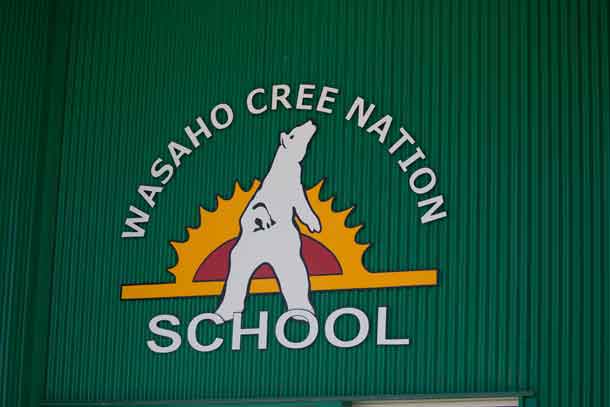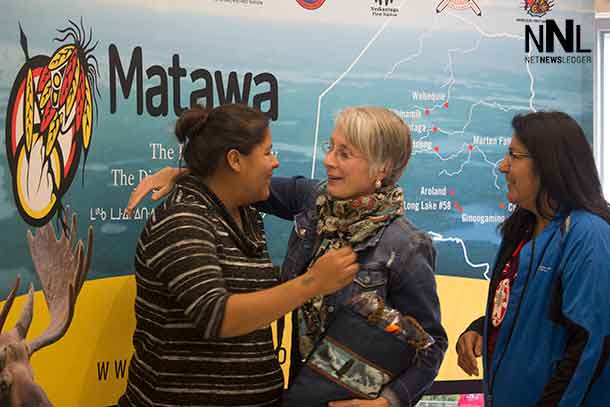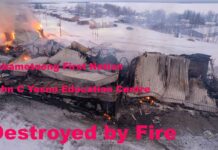OTTAWA – “Every Canadian deserves a real and fair chance at success, no matter where they live. When more Canadians are able to continue their education, practice new skills, or learn on the job, they are better prepared to find and keep good jobs now, and in the future. As we look beyond the COVID-19 pandemic, the recommendations of this task force will be critical in shaping that recovery. I would like to congratulate the new task force members on being selected to undertake this important work, and to thank our partners for the excellent nominees they put forward,” states Minister of Northern Affairs Daniel Vandal, P.C., M.P.
The Minister has announced the appointment of 13 members to a post-secondary education task force dedicated to improving educational opportunities and outcomes in Canada’s North and Arctic.
The Task Force on Northern Post-Secondary Education will assist in delivering on objectives identified in the Arctic and Northern Policy Framework that seek to close gaps in education and skills training that exist between the North and the rest of Canada. These innovative solutions will be led by Northerners, for Northerners, ensuring that the unique needs of remote and Northern communities are met.
Through engagement and consultation with Indigenous partners, youth, governments, post-secondary education institutions and leaders, the Task Force will make recommendations to the Minister of Northern Affairs on ways to address barriers and make post-secondary education achievable for more Northerners.
The following objectives of the Arctic and Northern Policy Framework will inform the work of the Task Force:
- To close the gaps in education outcomes; and
- Provide ongoing learning and skills development opportunities, including Indigenous-based knowledge and skills.
The Task Force will be led by Northerners, with balanced representation from all regions covered by the Framework, as well as representation of diverse Indigenous Peoples, and non-Indigenous people. Task Force members will lead virtual engagement sessions and public engagement sessions (when permitted) with Indigenous and non-Indigenous people in the Arctic and North who have engaged, or are trying to engage in post-secondary education.
The Task Force will be uniquely positioned to provide a comprehensive understanding of the challenges faced by Northerners in pursuing post-secondary education, and to provide recommendations to address gaps in post-secondary education across the North and Arctic.
The results of the sessions will be recorded in a final report with recommendations on how to improve education opportunities and outcomes in the North. A first draft of recommendations is expected to be completed in Winter 2021.
Budget 2019 proposed a number of new measures to complement existing efforts to strengthen Arctic and Northern communities, including $40 million over five years to support options for post-secondary education in the North. This funding includes $1 million to establish a Task Force to study post-secondary education in the Arctic and North; $26 million for a new campus science building in support of Yukon College’s transition to Yukon University; and $13 million for the Dechinta Centre for Research and Learning.
Responding to the recommendations of the Task-Force on Post-Secondary Education in the North is a priority for the Minister of Northern Affairs, who has been mandated to: “give consideration to the recommendations to come from the Task Force on post-secondary education in Canada’s Arctic and Northern regions …in order to establish a robust system of post-secondary education in the North.”
Task force members
Malerie Bayha, Northwest Territories
Malerie Bayha is a youth member of the Délı̨nę First Nation. She was enrolled in first-year pre-medicine at Red Deer College and is working toward a bachelor of science in psychology at University of Alberta. She volunteered at Red Deer Regional Hospital for 2 years and holds a health and life sciences fundamentals certificate and first aid certificate Level C. Malerie Bayha was employed as traditional knowledge research assistant for the Délı̨nę Got’ine Government in the summer of 2018.
Shozrё Melanie Bennett, Yukon
Shozrё Melanie Bennett is the executive director with the Yukon First Nations Education Directorate and is from the Tr’ondёk Hwёch’in First Nation. In her 30 education career, she has served as a First Nation liaison, teacher and administrator in First Nation schools and Ministry operated schools in British Columbia and Yukon. Melanie takes pride in our Yukon First Nations ways of knowing, traditional knowledge and strongly advocates that First Nations culturally relevant learning should happen for students every day in every school. Melanie holds a bachelor of education from Malaspina University and a master of education from University of Northern British Columbia in multidisciplinary leadership.
James Cook, Manitoba
James Cook grew up in Opaskwayak Cree Nation which is 6 hours north of Winnipeg and next door to The Pas. Both places, he considers his home. James highlights his role as a 31 year-old dad to 3 amazing children and a husband to an incredible wife. He is currently enrolled in the 2nd year of the business administration program at University College of the North in The Pas. James loves playing basketball in his spare time. He enjoys teaching his kids their homework and playing games with them. He also loves reading books with his wife and just being in her presence. For James, wherever his wife is, that is his home, and everything he does in this world now, he does for his world.
Ashlee Cunsolo, Newfoundland and Labrador
Ashlee Cunsolo Phd, is the founding Dean of the School of Arctic and Subarctic Studies at the Labrador Institute of Memorial University. She is working with multiple partners in Labrador and at Memorial University to lead the development of an academic unit in Labrador to offer Northern-led and Northern-focused undergraduate, graduate, and professional learning opportunities, as well as to establish a Labrador Campus of Memorial University. Ashlee sits on a variety of research and education councils and boards, both at Memorial University and externally, and focuses on institution building, equity, diversity, and inclusion in higher education, Northern sovereignty in research and education, and Indigenization and decolonization of the academy.
Florence Kushniruk, Yukon
Florence Kushniruk is the post-secondary program officer at Champagne and Aishihik First Nation’s Education Department and sits on the President’s Advisory Committee on First Nation Initiatives within Yukon University. She has worked for her First Nation since the age of 12 in many capacities but joined the Education team permanently in October, 2011. Kushniruk completed the business administration certificate program at Yukon College in 2016, but resigned in June 2017 in order to move forward with completing the diploma accreditation program. She returned to work for her First Nation and accepted the post-secondary program officer position in 2019. Florence is passionate about helping students reach goals they thought were unattainable because of their situation, and uses her own experiences to understand, empathize, and support each student.
Jodie Lane, Newfoundland and Labrador
Jodie Lane is Nunatsiavut’s director of education. She is a beneficiary of the Labrador Inuit Land Claims Agreement and was born and raised in the Inuit community of Makkovik. She completed her bachelor of arts in sociology at the University of Guelph, and then returned to her home to work for the Labrador Inuit Association (now Nunatsiavut Government) as a career fair coordinator. She has since held the positions of education counsellor and education manager for the Nunatsiavut Government’s Department of Education and Economic Development, and earned her master of education at Mount Saint Vincent University. Every year Lane visits all schools in Nunatsiavut, spreading the message of the importance of education while helping to guide students through the high school system and into post-secondary studies. She also played a key role in developing an Inuit bachelor of education program in collaboration with the Labrador Institute of Memorial University, which prepares teachers using curriculum infused with Inuit cultural content.
Erika Marteleira, Ontario
Erika Marteleira is the manager of the Post-Secondary Education Secretariat, a body which is guided by the input of the Inuit Post-Secondary Steering Committee, composed of representatives from each of the 4 Inuit land claim organizations and the 3 Nunavut regions at Inuit Tapiriit Kanatami. She lived in Iqaluit for 7 years and served as an instructor at the Nunavut Arctic College. Prior to that, Erika worked as a senior environmental assessment coordinator in Indigenous and Northern Affairs Canada’s Nunavut Regional Office. She holds a master’s degree in environmental sciences, policy and management and a bachelor of science in environmental sciences. She presently lives in Ottawa.
Rebecca Mearns, Nunavut
Rebecca Mearns is the acting president of Nunavut Arctic College. She took on this role in September of 2020. Prior to this she also held the positions of vice-president and the dean of education, Inuit, and university Studies. Before joining the college, Mearns was an instructor at Nunavut Sivuniksavut, the Inuit impact and benefit agreement aanager at the Qikiqtani Inuit Association, and a researcher at Inuit Tapiriit Kanatami. She was also a constable of the Royal Canadian Mounted Police. She holds an undergraduate degree in sociology with a minor in law and Aboriginal studies, and a master of arts in geography and environmental studies, both from Carleton University. Her graduate research focused on the sharing of Inuit knowledge between Elders and youth and the use of land-based camps to facilitate learning.
Peesee Pitsiulak, Nunavut
Peesee Pitsiulak is Dean of the Nunatta Campus of Nunavut Arctic College in the Qikiqtani Region of Nunavut. She is from Kimmirut, Nunavut. She is one of the last generation who lived out on the land, before relocation to settlements. Pitsiulak became a teacher’s aid in 1975 before earning her teaching licence. Pitsiulak has a bachelor of education degree from McGill University and a master of education degree from University of Prince Edward Island. Pitsiulak has worked at Nunavut Arctic College since 1990 in the capacity of instructor, chair, and dean over the years. She has held a variety of positions related to the field of education in Nunavut, including as a grade school teacher in Kimmirut, an instructor and principal at the Nunavut Teach Educator Program, the Director of Curriculum and School Services, and later the Inuit Qaujimajatuqangit coordinator at the Government of Nunavut’s Department of Education. Pitsiulak has a passion for keeping Inuit language and culture alive.
Angélique Ruzindana Umunyana, Northwest Territories
Angélique Ruzindana Umunyana is originally from Rwanda and has lived in Yellowknife for 14 years. She received her Ph.D. in microbiology from the Université de Sherbrooke and sits on the board of directors of the Collège Nordique Francophone and brings a francophone perspective to the task force on Northern Post-Secondary Education. She has focused her attention on bringing high-quality post-secondary education to the North since she moved to Yellowknife. She has raised her own family in the North, while having to send them to southern Canada to pursue their own educational aspirations.
Tosh Southwick, Yukon
Tosh Southwick belongs to the Wolf moiety and is a citizen of Kluane First Nation. She grew up in a small northern community and is the mother to 3 children and auntie to many more. Tosh is a co-owner of IRP consulting where her company focuses on inspiring reconciliation potential across sectors and supporting the self-determination of Indigenous communities. Prior to opening IRP consulting, Southwick was the associate vice president of Indigenous engagement and reconciliation at Yukon University. She has also worked in governance, education, human resources and health for various First Nations Governments and organizations. Tosh served as a Youth Councillor and Deputy Chief for her First Nation. She currently sits as the chair of the Yukon Training Policy Committee and is an active member of the Kluane First Nation Development Corporation. Southwick acquired her bachelor of arts from the University of Victoria with honours in psychology and completed a master of education degree from the University of British Columbia.
James Takkiruq, Nunavut
James Takkiruq is from Gjoa Haven, Nunavut and is currently studying in his final year of law at the Nunavut Law Program. Takkiruq is 21 years old and hopes to be a practicing lawyer by the time he turns 23. James hopes that through the Task Force he is able to improve the post-secondary experience for those who are planning to study at northern institutions; studying in one himself, he hopes to provide useful input in task force discussions. Participating in the Task Force is a great honour for him, even more so due to the fact that he is still a student in a northern post-secondary institution.
Kelsey Wrightson, Northwest Territories
Kelsey Wrightson is the Executive Director of the Dechinta Centre for Research and Learning. Dr. Wrightson grew up in Edmonton, Alberta, and completed her Ph.D. at the University of British Columbia in 2015 with a focus on Dene governance and cultural practices. In 2016 she held a post-doctoral research and teaching position at Queen’s University in the Centre for Indigenous Arts, and then returned to the University of British Columbia, working in research grant administration before moving to Somba’ke to work at the Dechinta Centre.







